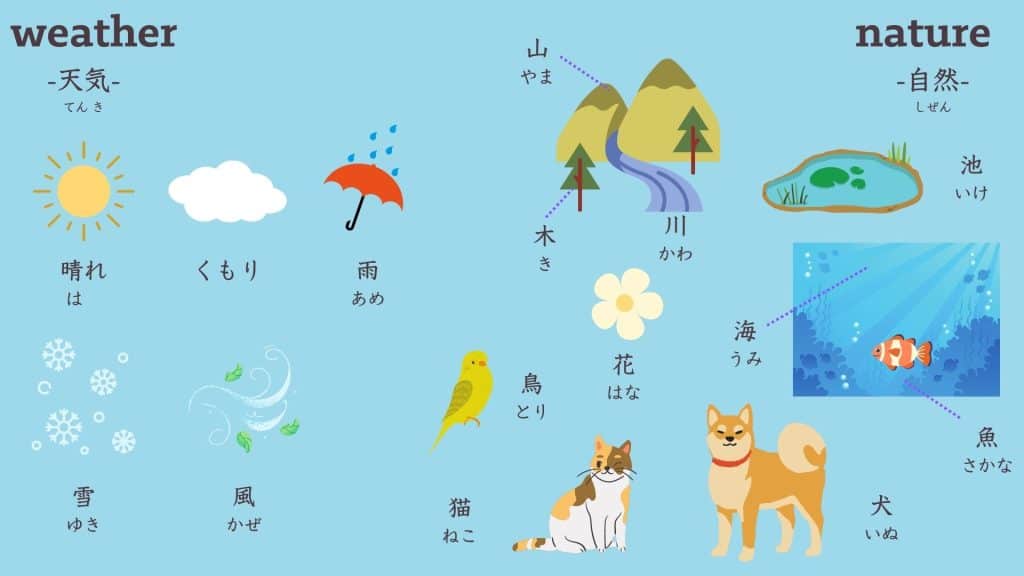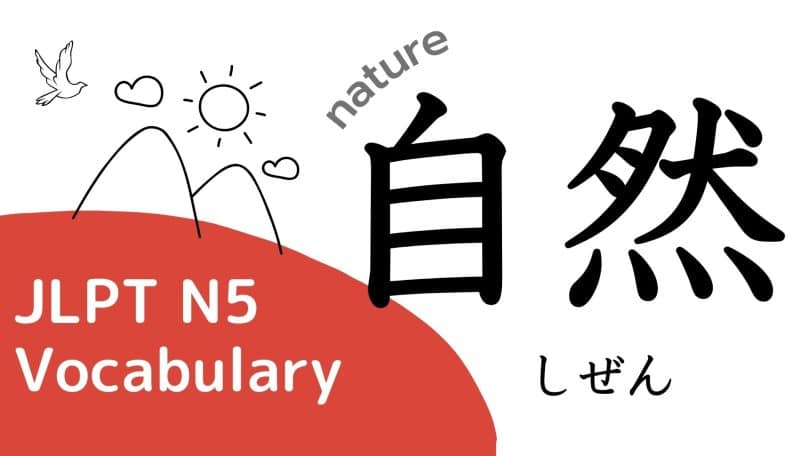Today, We will study Basic Japanese vocabulary related to “nature ” in your town that will appear on the JLPT N5. Use infographics, flashcards, and practice tests to study effectively. Get ready!
Table of contents
Note: Weather is an essential topic
First, the topic of weather is a universal topic of small talk. Also, we, Japanese, are quite sensitive to the weather because we value the seasons a lot. Let’s master it and be able to chat with Japanese people. Also, you probably use the language of nature often when you travel. Let’s learn them while imagining the places you want to visit.
Infographic:

weather
| English translation | Japanese |
| sunny | 晴(は)れ |
| cloudy | くもり |
| rain | 雨(あめ) |
| snow | 雪(ゆき) |
| wind | 風(かぜ) |
Paraphrasing questions are common on the JLPT. For example, If it is「晴(は)れ」”the weather is fine” , “the sky is blue”.And rain and wind are often used in combination with adjectives.
- 雨(あめ) が 多(おお)い / 少(すく) ない : a lot of rain / few rain
- 雨(あめ) が 強(つよ)い / 弱(よわ)い : heavy rain / light rain
- 風(かぜ) が 強(つよ)い : windy
In English, we say “heavy rain”, where heavy is “おもい” in Japanese, but Japanese use strong , ”つよい”to express it.It is easy to make mistakes, so be careful.
nature
| English translation | Japanese |
| moutain | 山(やま) |
| tree | 木(き) |
| river | 川(かわ) |
| sea | 海(うみ) |
| pond | 池(いけ) |
| flower | 花(はな) |
Also, it is a good idea to remember natural places by associating them with commonly used verbs. Also, although “海(うみ)” means “sea,” it is sometimes used in Japan as if it means “beach. When someone says “うみ へ いきます”, we imagine which person is going to the beach.
Flash card video
Practice test video
coming soon…..!
Recommendation books for JLPT
Here, you can add your training with using these book for JLPT N5.

The Preparatory Course for the Japanese Language Proficiency Test: N5 Reading
Please check this article too.
Keep learning…!
Lastly, the JLPT vocabulary is about 800 words. So, continuous daily study is key. Check out the others, and keep building your vocabulary!







